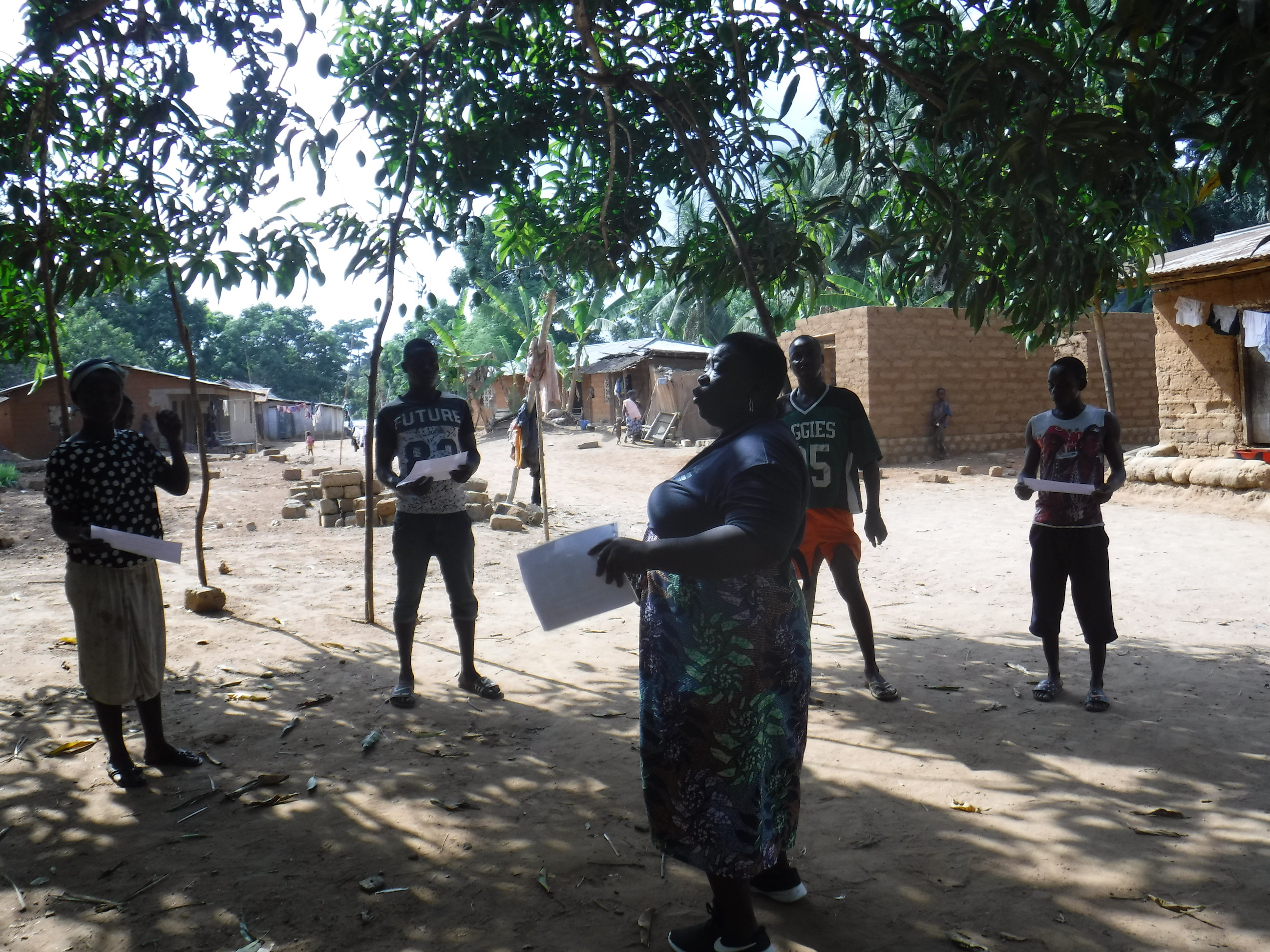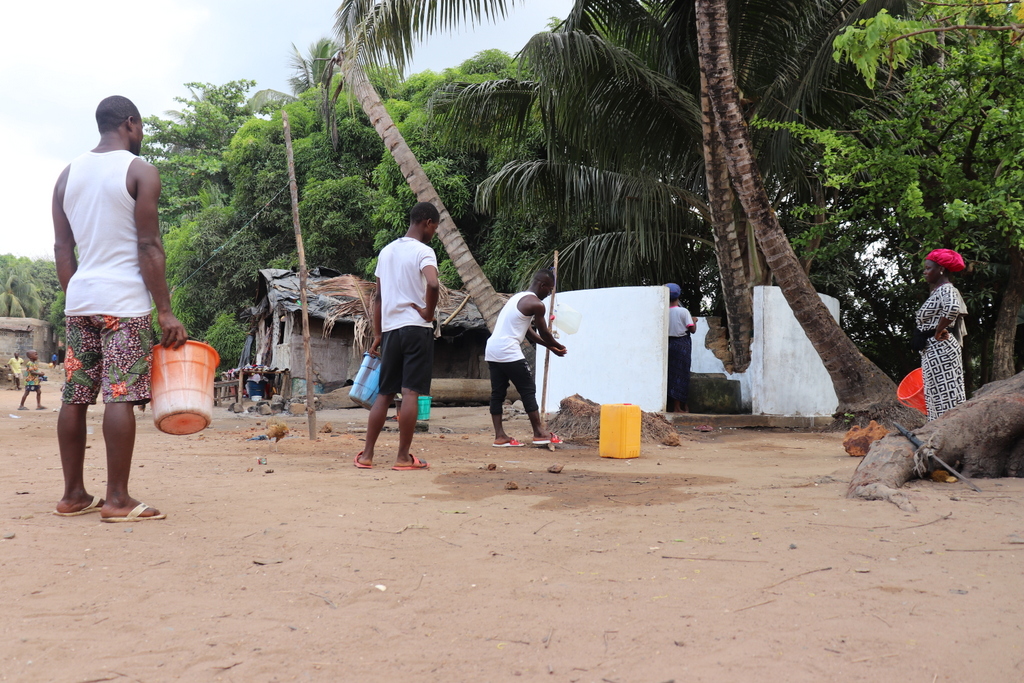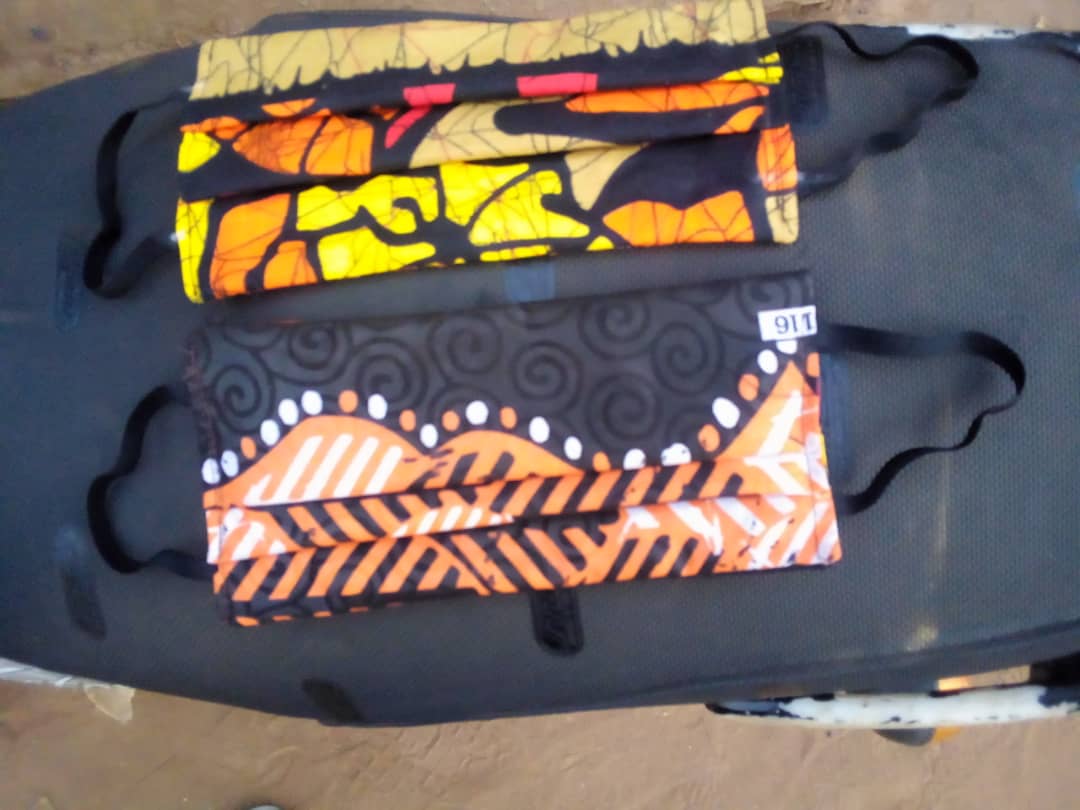How we are prepared for COVID-19 in Sierra Leone
Sierra Leone has just 7 cases of COVID-19, but our teams have already taken a series of proactive steps to support communities as they prevent the spread of the virus and ensure that our wells are reliable and safe.
Before the first reported case in the country, our teams visited each of our wells to prepare for a potential epidemic in Sierra Leone. We met with each of the well’s Water User Committees to say that we will be using phones to stay in touch and monitor the status of wells. We made sure that we have the phone number for the main contact for each well and that each person had our phone number. They were told that if anything breaks down or is need of attention to call us immediately.

Community sensitization on COVID-19
Also, we instructed each committee to set up tippy tap handwashing stations outside of the pump area. The committee members must maintain the tippy taps by ensuring that they are full of water and have soap available. The well caretaker will then enforce a new rule that people must wash their hands before and after collecting water. The caretaker is also going to completely clean the pump each morning and at the end of each day with soap and water to prevent the spread of germs at the well.
During each community visit, our teams provided the most up-to-date information about COVID-19, how to prevent it from spreading, how to identify if someone has it, and what to do when someone suspects that they or a family member have the virus. Our community sanitation and hygiene trainings already emphasized preventing the spread of diseases and the importance of handwashing with soap to stop their transmission. These lessons are being reinforced in light of the COVID-19 pandemic.
“The time has come again when we as a nation need to put added emphasis on the importance of having to regularly wash our hands,” said our hygiene and sanitation trainer Zainab Sesay, during a recent community visit.
“Fighting the Coronavirus goes hand in hand with having clean water at all times. The practice of handwashing can be done properly only when there is clean water.”
We then reached out to all of the local counselors and Paramount Chiefs to share our messaging and let them know all of the communities we have met with about COVID-19. Coordination with government, both local and national, is essential during a crisis like this – a lesson made apparent during the Ebola outbreak in Sierra Leone.

People lined up 6 feet apart to fetch water, as the person at the front of the line washes his hands.
Finally, during each water point visit, we made sure to repair any wells that needed it and replaced parts that we thought might need to be replaced in the coming months. This will both help ensure that water points will work at a time when communities need them the most and reduce the number of trips that our staff need to take to make repairs in the near future. The phone call system, always in place and now emphasized, will ensure that we can respond as problems arise.
The government of Sierra Leone mandated a 72-hour lockdown nationwide that ended on Wednesday. During that time, we monitored the calls and now our teams are beginning to respond. We have already recorded 16 calls – including 2 instances where wells needed attention. We are already taking steps to address those problems and are prepared for any issues that will come up in the future.
During the Ebola crisis, our work was deemed essential by the government of Sierra Leone. Like we did at that time, we are prepared to continue supporting each of our wells when there is an issue. To help our team members stay safe, we had our tailor sew cloth face masks for our team. The tailor used 2 different fabrics so that it is easy to know which side goes against the face. Staff were also given instructions on how to use the masks properly.

Custom face masks sewn for our teams
We also learned that misinformation spreads quickly – especially through WhatsApp. So we are setting up groups with community leaders and Water User Committees to share information about COVID-19, in English, Kiro, and other local languages. These messages are meant to be shared to keep communities informed and will also respond to rumors and myths as they make their way from person to person.
We continue to work with communities as the situation in Sierra Leone changes and maintain our efforts to ensure that water points remain safe and reliable for everyone.
Home More Like ThisTweet